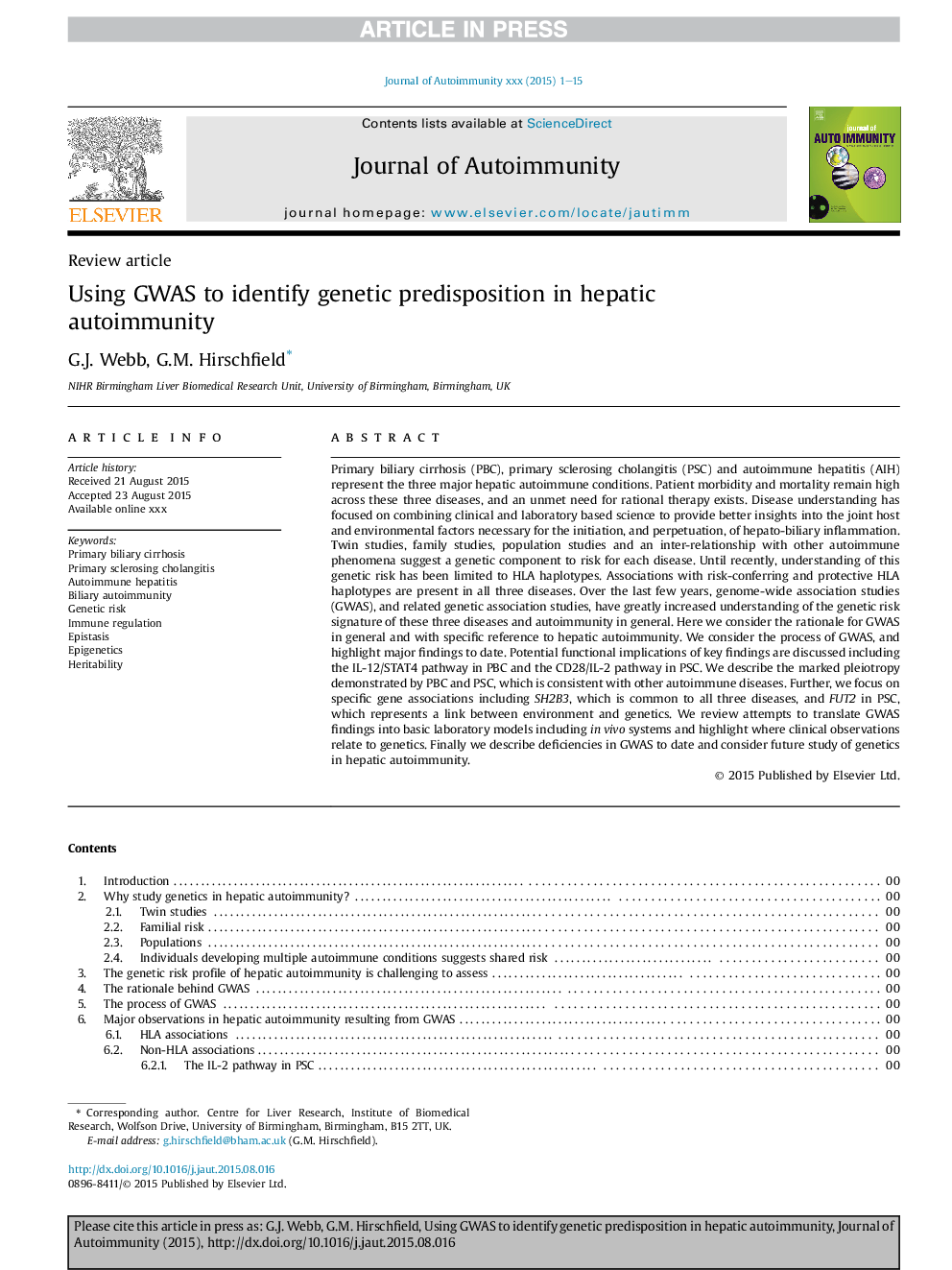| کد مقاله | کد نشریه | سال انتشار | مقاله انگلیسی | نسخه تمام متن |
|---|---|---|---|---|
| 6119134 | 1592283 | 2016 | 15 صفحه PDF | دانلود رایگان |
عنوان انگلیسی مقاله ISI
Using GWAS to identify genetic predisposition in hepatic autoimmunity
دانلود مقاله + سفارش ترجمه
دانلود مقاله ISI انگلیسی
رایگان برای ایرانیان
کلمات کلیدی
موضوعات مرتبط
علوم زیستی و بیوفناوری
ایمنی شناسی و میکروب شناسی
ایمونولوژی
پیش نمایش صفحه اول مقاله

چکیده انگلیسی
Primary biliary cirrhosis (PBC), primary sclerosing cholangitis (PSC) and autoimmune hepatitis (AIH) represent the three major hepatic autoimmune conditions. Patient morbidity and mortality remain high across these three diseases, and an unmet need for rational therapy exists. Disease understanding has focused on combining clinical and laboratory based science to provide better insights into the joint host and environmental factors necessary for the initiation, and perpetuation, of hepato-biliary inflammation. Twin studies, family studies, population studies and an inter-relationship with other autoimmune phenomena suggest a genetic component to risk for each disease. Until recently, understanding of this genetic risk has been limited to HLA haplotypes. Associations with risk-conferring and protective HLA haplotypes are present in all three diseases. Over the last few years, genome-wide association studies (GWAS), and related genetic association studies, have greatly increased understanding of the genetic risk signature of these three diseases and autoimmunity in general. Here we consider the rationale for GWAS in general and with specific reference to hepatic autoimmunity. We consider the process of GWAS, and highlight major findings to date. Potential functional implications of key findings are discussed including the IL-12/STAT4 pathway in PBC and the CD28/IL-2 pathway in PSC. We describe the marked pleiotropy demonstrated by PBC and PSC, which is consistent with other autoimmune diseases. Further, we focus on specific gene associations including SH2B3, which is common to all three diseases, and FUT2 in PSC, which represents a link between environment and genetics. We review attempts to translate GWAS findings into basic laboratory models including in vivo systems and highlight where clinical observations relate to genetics. Finally we describe deficiencies in GWAS to date and consider future study of genetics in hepatic autoimmunity.
ناشر
Database: Elsevier - ScienceDirect (ساینس دایرکت)
Journal: Journal of Autoimmunity - Volume 66, January 2016, Pages 25-39
Journal: Journal of Autoimmunity - Volume 66, January 2016, Pages 25-39
نویسندگان
G.J. Webb, G.M. Hirschfield,